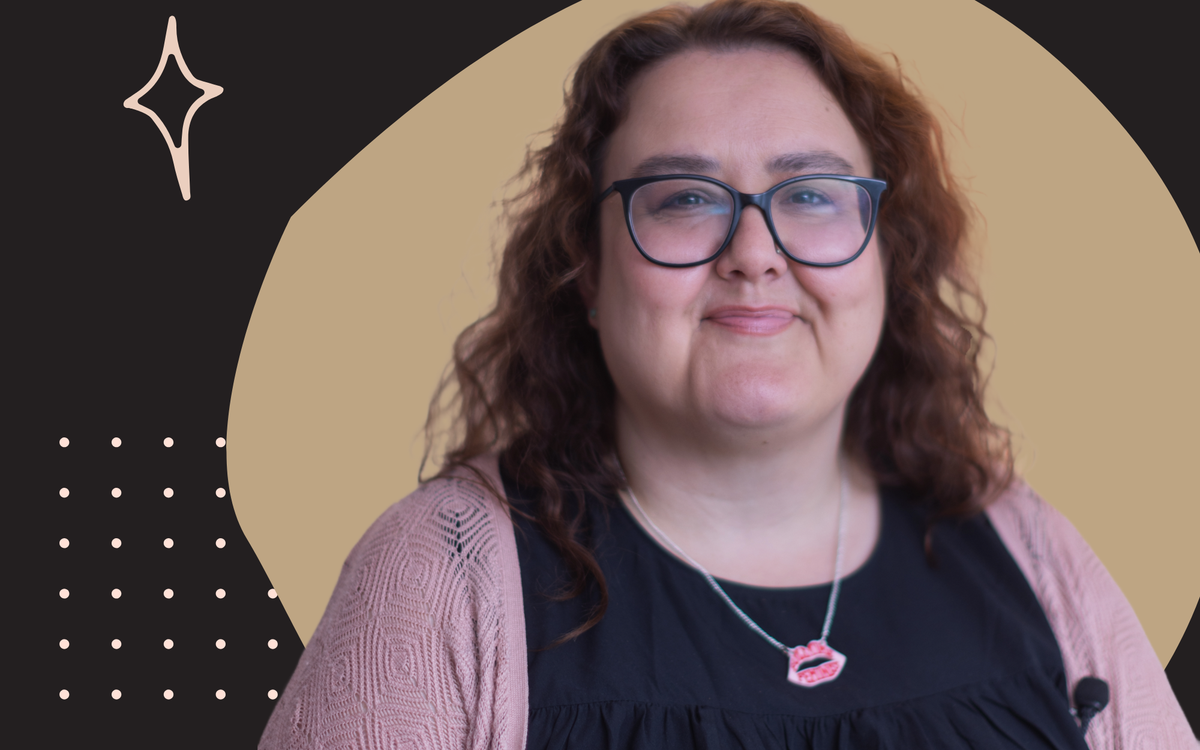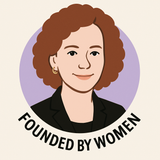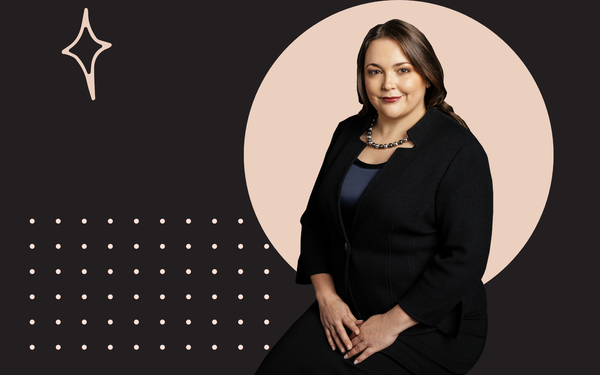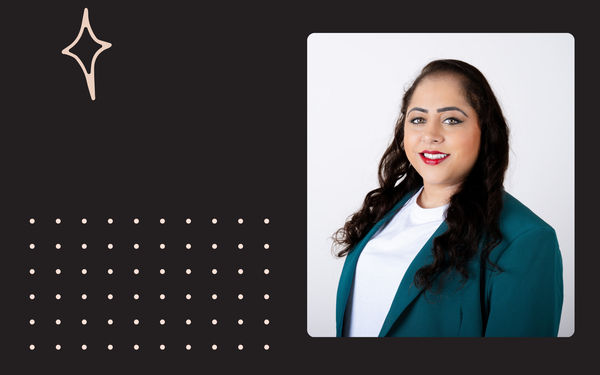Dr Sally Olewe-Richards: Creating Safe Havens for Survivors Through Innovation & Empathy

Part of the series: 30 Founders Shaping the Future of Mental Health in 2025
When survival becomes a full-time job, healing can feel impossible—especially for women enduring narcissistic abuse. Sally Olewe-Richards, a survivor-turned-advocate, refused to accept this reality. In 2019, she launched Women of Wisdom and Courage®, a digital lifeline that bridges the painful space between crisis support and true recovery through radical accessibility and survivor-led design.
What began as a self-funded passion project has become a revolutionary model for post-abuse care. Her SHIELD™ Programme—built on Safety, Healing, Independence, Empowerment, Love, and Dignity—guides survivors through four transformative phases with tools rarely available outside expensive therapy: hypnotherapy, psychosensory techniques, and nervous system regulation. But the true breakthrough? Designing every element alongside survivors. From the logo (co-created with users) to the "Bunny Breath" technique that one member calls her "instant calm button," this is healing reimagined by and for those who need it most.
Here, Dr. Sally Olewe-Richards reveals how she built this sanctuary against all odds, why emotional support must evolve with each healing phase, and the surprising ways survivor feedback shapes even the smallest details—like choosing colors that symbolize hope without triggering trauma.
1. What were some of the biggest challenges you faced in developing Women of Wisdom and Courage® as a digital platform for survivors of domestic abuse, and how did you overcome them?
When I started Women of Wisdom and Courage® back in 2019, I had this vision of creating something that could help women everywhere heal from narcissistic partner abuse. The biggest challenge? Making trauma healing accessible and affordable for women around the world while being almost entirely self-funded. This has truly been a passion project born from my own journey as a survivor.
I created this platform because I fundamentally believe all women should be able to access deep healing tools and a loving community for support, without having location and cost as barriers. Too many survivors are left to navigate their healing journey alone simply because they can't afford private therapy or don't live near specialist services, and I wanted to change that.
A significant ongoing challenge has been helping women understand this is a valid form of support, knowing it exists, and recognising its value despite the low access price. There's often a perception that "you get what you pay for," which can create doubt about the quality of more affordable healing resources. We've had to work hard to demonstrate that our platform offers genuine, professional support rather than being a "budget option." Meeting women at the point when they're ready to do the healing work is another delicate balance, as everyone's healing journey is unique and unfolds in its own time.
Being self-funded has meant I've had to work on other projects alongside developing this platform for the last few years. Balancing my passion for this work with the practical need to earn a living has been a constant juggling act. There have been times when I've had to slow development to focus on paid work, which has been frustrating when I could see the need for these resources growing.
Operating as a one-woman team until May 2023, when Debra Webster joined me, meant wearing every possible hat – content creation, technical development, customer support, marketing, social media, website management – you name it, I was doing it! Even as a two-woman team now, we're still stretched incredibly thin, but having Debra on board has been transformative. It's allowed us to expand our capacity while maintaining the personal touch that makes our platform special.
Marketing the platform and reaching the right women has been particularly challenging. Without a marketing budget, we've had to rely on word-of-mouth, social media, and building relationships with domestic abuse organisations. How do you reach women who might need this support when many are still in controlling situations where their online activities are monitored? We've had to be creative and thoughtful about our approach.
On the positive side, one of the most unexpected and wonderful outcomes has been all the amazing women I've met – both survivors in our community and professionals working in the domestic abuse sector. These connections have been incredibly valuable, not just for developing the platform but also personally. The solidarity and shared purpose among women supporting each other through trauma recovery is truly powerful.
Despite the financial struggles of being self-funded and the limitations of our tiny team, seeing women reclaim their lives with dignity and strength makes every obstacle worthwhile. As one user put it, "Finding this group has given me strength I didn't even know I had." That's what keeps me going, even when I'm juggling other work to keep this project alive.
2. The SHIELD™ Programme spans four distinct phases—how do you support users emotionally as they transition between each phase of healing?
The SHIELD™ Programme grew out of my recognition that trauma recovery is a complex, individual journey. The name SHIELD™ represents the core values that underpin our approach: Safety, Healing, Independence, Empowerment, Love, and Dignity. Each element is essential to the recovery journey, creating a protective framework that helps women rebuild their lives after abuse.
Our programme is built around four transformative phases, each designed to support women as they move from surviving to thriving. In Phase 1, "Understanding Abuse Dynamics," we focus on helping women see what's actually happened to them. Abuse often leaves us questioning our reality and doubting ourselves. We shine a light on the hidden patterns of abuse so women can clearly understand what they've experienced. This validation is incredibly emotionally supportive – it helps release self-blame and is the first step toward reclaiming power.
As women move into Phase 2, "Trauma Recovery," we acknowledge that trauma affects both mind and body. This phase focuses on helping women understand how trauma impacts their nervous system and emotional wellbeing. We've included sessions on hypnotherapy and psychosensory therapy to help women deeply heal at a subconscious and nervous system level. We offer simple, effective tools like the "Bunny Breath" technique that one user mentioned helps "calm my nerves." The 'Tiger in the Room' session has been particularly helpful here, with one user sharing it "reminds me to bring awareness to whether there is really danger or not and I have learned about the choices of taking my power back from being triggered." These practical approaches help women feel more grounded and in control of their emotions.
The transition to Phase 3, "Personal Empowerment," is where women begin to reconnect with their true selves. Abuse can steal your sense of identity, so this phase is about rediscovery. A crucial component of this phase is inner child healing, where we guide women to explore and understand their family patterns and early beliefs. Many survivors discover that the dynamics in their abusive relationships echo patterns from childhood, and this awareness can be both confronting and liberating. We provide gentle, supportive tools for working with these deeper insights, helping women connect with and nurture the parts of themselves that were wounded long before the current relationship.
Finally, in Phase 4, "Moving Forward," we support women in creating the future they want. Whether it's pursuing a dream, building a healthy relationship, or finding inner peace, we guide women in taking practical steps forward with confidence and clarity.
Throughout all phases, we have the community available for support, with professionals and other survivors there to offer guidance, answer questions, and provide friendship, care and encouragement. This sense of belonging is crucial – healing doesn't happen in isolation, and having others cheer you on makes all the difference. Women often tell us that knowing they're not alone in their experiences and having a safe space to share both struggles and victories has been transformative.
What makes our approach unique is that women can work through these phases at their own pace, in their own safe space. Healing isn't linear, and our programme recognises that. We provide a flexible, supportive framework that meets women wherever they are in their journey, offering consistent emotional support throughout. The SHIELD™ values of Safety, Healing, Independence, Empowerment, Love, and Dignity infuse every aspect of our programme, creating a holistic path to recovery that addresses both the practical and emotional needs of survivors.
3. In what ways has user feedback from survivors influenced the ongoing development of your app and support offerings?
Listening to survivors has been at the heart of everything we've created. When women told us they felt alone after initial support from domestic abuse organisations ended, we knew our digital platform needed to provide ongoing connection. As one user beautifully put it, "Here, I know I can check in safely, ask questions, rant and have the space held for me."
We had our first founding members join in July 2023, and their early feedback was instrumental in refining our approach. Then in April 2024, we began a 12-month pilot funded by the Nottinghamshire Police and Crime Commissioner, in partnership with domestic abuse charity Broxtowe Women's Project. This collaboration has provided structured input directly from BWP service users and support staff, giving us invaluable insights into how women interact with our platform in real-world scenarios.
What makes our platform unique is offering therapeutic techniques women can follow along at home, for a very low cost and with immediate access and support. This helps overcome the barriers of NHS wait lists in the UK or financial constraints, especially when so many women experience financial abuse that limits their ability to access private support. We've created a range of modalities that people can try and see what works for them, with pre-recorded sessions by over 20 professionals, rather than seeing an individual therapist who may only be trained in one or two approaches.
Even our branding was shaped by feedback! Our logo was created through collaboration with women in our original online support community. We developed six initial concepts, gathered their thoughts, and merged the most popular designs. Every element of our platform, from our thoughtfully chosen colours to our co-created logo, symbolises the strength, resilience and transformation we aim to foster.
The specific techniques we include have been directly influenced by what survivors tell us helps them in daily life. When women shared that emotional regulation was particularly challenging, we expanded those resources. The feedback speaks for itself: "The techniques to help with emotions are really useful...this has been my biggest problem area. No one has helped with where to go or how to get help in these areas, so finding this has been gold."
From the beginning, I knew that deep, transformative healing would require addressing the subconscious mind and nervous system. That's why I incorporated hypnotherapy and psychosensory therapy sessions into the programme – approaches I'd seen create profound shifts in my work with trauma survivors. The positive response to these techniques has confirmed that addressing trauma at this deeper level is essential, with users reporting significant improvements in their ability to manage triggers and emotional responses.
One of the most rewarding aspects of this work has been the incredible women I've met through developing this platform – both survivors in our community and dedicated professionals working in the domestic abuse sector. Their insights, experiences, and feedback have been invaluable in shaping our offerings. These connections remind me daily of the importance of this work and the power of women supporting women through trauma recovery.
Being self-funded and having to work on other projects alongside this platform has actually made user feedback even more crucial. With limited time and resources, I've had to be strategic about what to develop next. Survivor feedback has guided these priorities, ensuring that even with constraints, we're focusing on what will help women most. Their voices have shaped not just what we create, but when and how we roll out new features.
What excites me is that this is very much an organic process that will continue to develop and improve as we expand our capacity. We're just at the beginning of what's possible, and as more women join our community and share their experiences, the platform will evolve to meet their needs even more effectively.
By continuously incorporating survivor perspectives, we've created something that truly meets women where they are. As a self-funded passion project run by a tiny team, this feedback-driven approach has allowed us to focus our limited resources where they make the most difference – on creating tools that genuinely help women heal and thrive.
Are you a woman leader with an inspiring journey to tell? Founded by Women is on a mission to elevate and amplify the voices of women making an impact.
If you're breaking barriers, driving change, or paving the way for others, we’d love to feature your story. Get in touch with us today!
👉 Contact Us


